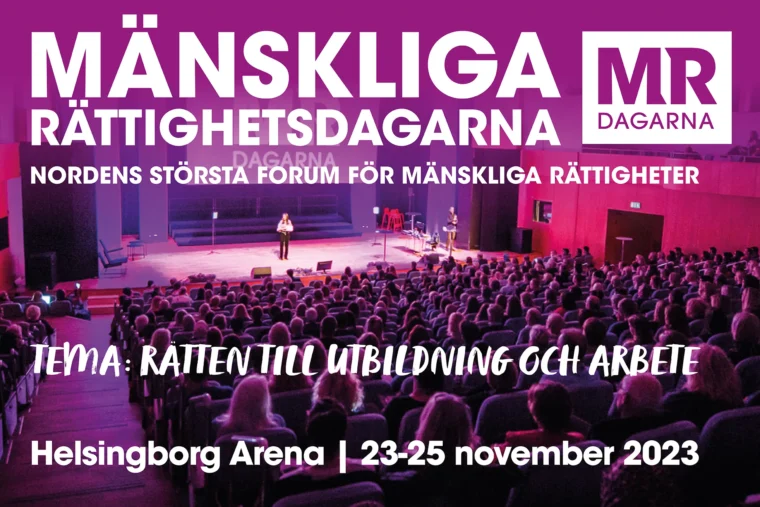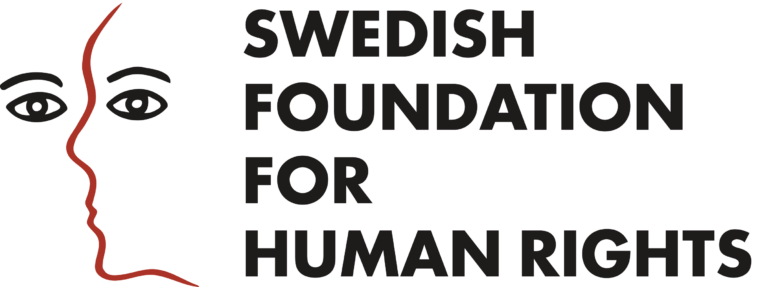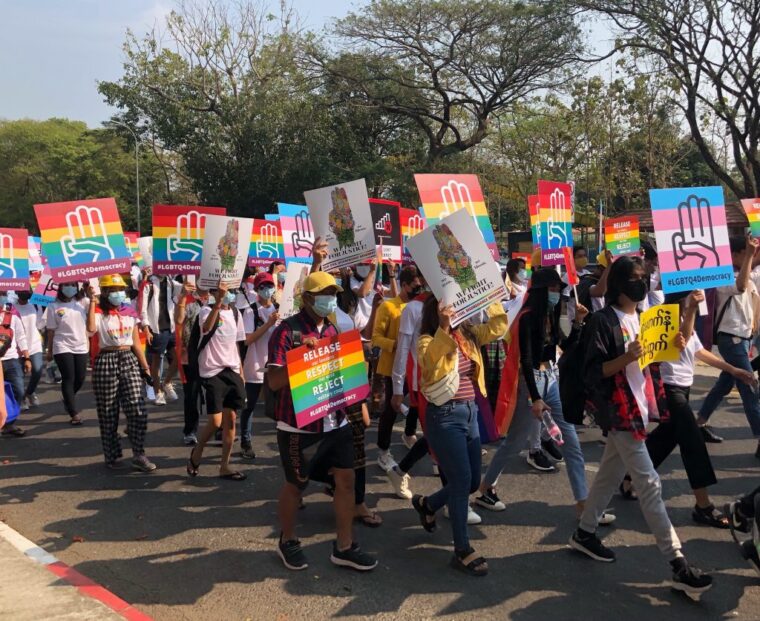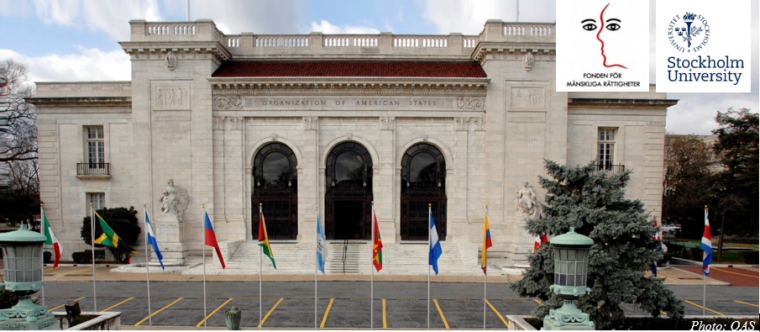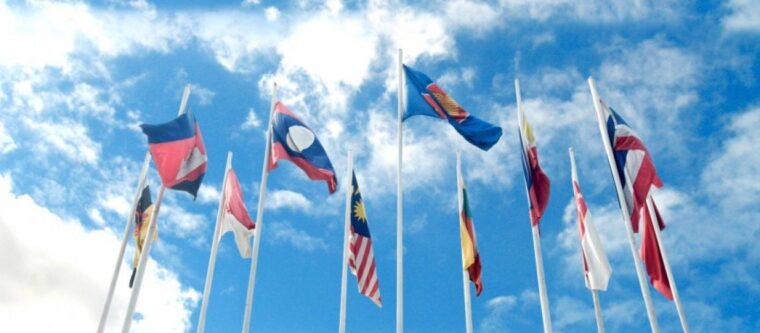
The Swedish Foundation for Human Rights invites submissions to its fourth essay competition for Bachelor and Master students from various academic disciplines.
Regional human rights protection mechanisms and regional intergovernmental organisations have important roles to play in safeguarding human rights, to prevent future abuses, and ultimately to ensure sustainable peace and security. This essay competition aims at examining and exploring the nexus between human rights and peace and security within the Asia-Pacific context.
The Asia-Pacific region is faced with many human rights challenges, including migrant rights, labour rights and human rights of women and girls, ethnic minorities, LGBTQI+ people and children. In terms of peace and security, there are a number of armed conflicts and security crises in the region, including for example Afghanistan, Myanmar, Bangladesh, Philippines, Thailand and North Korea.
Unlike Europe, the Americas and Africa, the Asia-Pacific region does not have a region-wide intergovernmental system, such as treaties, courts, commissions or other institutions – to protect and promote human rights. However, intergovernmental institutions, instruments and mechanisms do exist. The Association of Southeast Asian Nations, or ASEAN, with its ten member states, strives to promote peace, stability, social, economic and cultural development and cooperation in Southeast Asia. As part of ASEAN, the Intergovernmental Commission on Human Rights (AICHR) and the ASEAN Human Rights Declaration aim to promote and protect human rights and fundamental freedoms of the peoples of ASEAN. Other significant intergovernmental institutions in the region include South Asian Association for Regional Cooperation (SAARC), South Asia Initiative to End Violence Against Children (SAIEVAC), Pacific Islands Forum (PIF) and Pacific Community (PC). In addition, there are various non-governmental institutions and mechanisms aiming to promote human rights and peace such as the Council for Security Cooperation in the Asia Pacific (CSCAP), the Asian Human Rights Commission (AHRC) and the Asian Human Rights Charter.
The theme of the essay competition is:
The interlinkages between human rights protection and peace and security, with a regional focus on the Asia-Pacific mechanisms and intergovernmental organisations.
Essays could be on a general level, or for example be delimited to a specific right, conflict, or geographic area, and refer to one or various relevant regional mechanisms and intergovernmental institutions. They must however, relate to the nexus between human rights and peace and security.
We invite students from different academic disciplines to participate, such as (but not limited to): law, political science, peace and conflict studies, human rights studies, gender studies, international relations, development studies, criminology, anthropology, history and journalism. The essays can be written as part of a specific course or independently.
The writer of the winning submission will be awarded travel, accompanied by the Swedish Foundation for Human Rights, to Asia for participation in meetings with regional actors, planned for in November/December 2022 (approximately 5-7 days, including upkeep and travel insurance). The winner will be responsible for applying for and obtaining travel authorization. The finalists will also have an opportunity to present their essays at a seminar organised by the Swedish Foundation for Human Rights, in the fall of 2022. The second and third place finalists will receive one ticket each and train tickets within Sweden to visit the Swedish Forum for Human Rights (Mänskliga Rättighetsdagarna) in Örebro, 17-18 November 2022.
Eligibility: The submitter of an essay must be enrolled in a Bachelor’s or Master’s program in a university or other higher learning institution in Sweden. Please note that a certificate of enrolment for the spring or autumn semester 2022 must be attached to the essay submission.
Format: Times New Roman, font size 12, spacing 1,5, margins 2,5 cm. The length of the essay should be 3 000 – 4 000 words. The essay should be written in English.
Disclaimer: The Swedish Foundation of Human Rights reserves the right to adapt, change or cancel the first prize award should exceptional circumstances arise, such as new world wide Covid-related restrictions or security concerns. In such event we will as far as possible and in discussion with the winner strive to replace the award with a suitable alternative.
Please email sofia.ekarv@humanrights.se to register your interest to participate in the competition and submit your essay no later than October 2, 2022. Title your email ”Essay Submission”. For further information please contact Sofia Ekarv, Program Manager & International Law Advisor at the Swedish Foundation for Human Rights, sofia.ekarv@humanrights.se.
Read previous winners’ essays here and find their testimonies here below.
Testimony of Helmer Jonelid, winner of the essay competition in 2021
Having participated in the Essay Competition twice, I can certainly say that it is one of the highlights of the year. Keeping the topics broad and the competition open for students from different fields, the Swedish Foundation for Human Rights provides future humanitarians with a unique opportunity to delve into the issues that they have an interest in, but would otherwise not find an excuse to actually delve into.
To then have the opportunity to discuss my papers with other students, the distinguished panels and other experts in a seminar revolving around the finalist’s papers adds an extra layer to the competition, not least by widening the participants’ professional networks. I would not have won the competition in 2021, had I not participated in 2020 and received such excellent feedback as well as encouragement to participate again.
Due to the pandemic, I have not been able to retrieve my prize, but the Foundation has been very accommodating in trying to find alternative solutions. Regardless, participating in the Essay Competition are two of the best decisions that I have made in my professional career, and probably will be for years to come. I sincerely urge every student with an interest in human rights, regardless of their field of study, to participate and take the chance to find their own take on this very important and topical field.
Testimony of Amalia Ydrefelt Hanell, winner of the essay competition in 2020
Participating in the essay competition was a very rewarding experience! The competition gave me the opportunity to delve deeper into a particular topic and region that really interests me and it was also a good complement to my studies.
Being one of the finalists, I had the opportunity to present and discuss my essay at a seminar together with Swedish Foundation for Human Rights and prominent experts in the field. I found it very exciting to hear their reflections and comments on my essay and it also gave me the opportunity to widen my network.
While we have not yet been able to travel due to COVID-19, I do not regret that I participated in the competition! Lastly, the Swedish Foundation for Human Rights has been very helpful throughout the entire process and I am really grateful for having my eyes opened to their organization and work!
Testimony of Emmy Rosendahl, winner of the essay competition in 2019
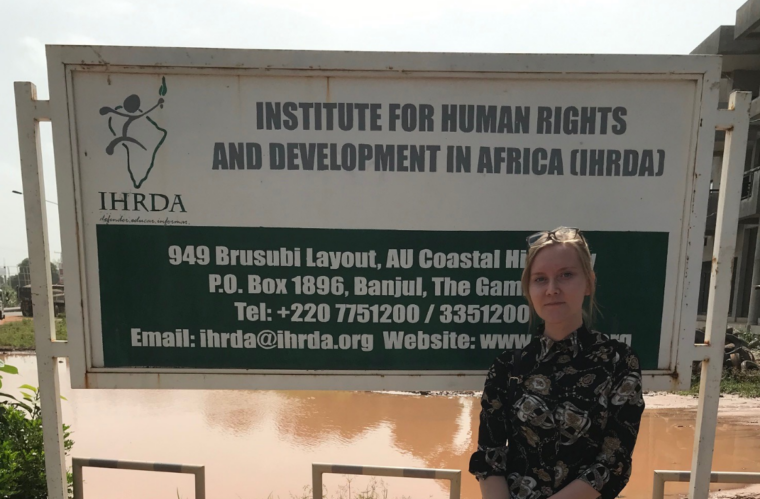 Emmy in front of IHRDA’s office in Banjul, a local human rights organisation
Emmy in front of IHRDA’s office in Banjul, a local human rights organisation
The award trip to the NGO-forum in Banjul, Gambia, was a truly exciting experience! It introduced me to new aspects of the human rights situation in Africa. One such aspect was the serious plight and persecution of people suffering from albinism, which was not something I had ever heard much about before.
I also had the chance to meet and listen to human rights advocates from different countries, cultures and professions, as well as to hear about the specific challenges they have faced. It was a great first-hand introduction to the human rights system in Africa and on a whole different level than just reading about it in a book.
Writing the essay was also a very educative experience, as it gave me the opportunity to explore an area of human rights which I was not yet familiar with. Winning the essay competition is a merit which has been acknowledged at several occasions, such as at interviews for job positions.

